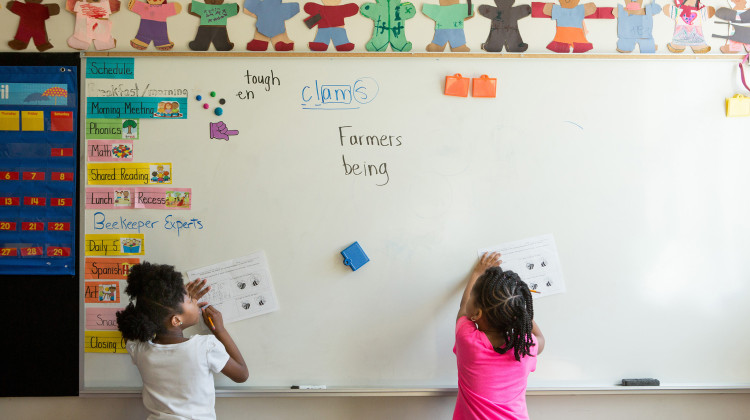
Senate Bill 518 will be voted on by the full Senate before a Feb. 20 deadline.
Allison Shelley/The Verbatim Agency for EDUimagesHave a news tip for WFYI's education team? Share it here.
Indiana lawmakers are considering a proposal that would require some public school districts to share local property tax revenue with charter schools, reigniting a debate over school funding fairness.
The fight over Senate Bill 518 highlights a broader question: how to equitably fund all students, regardless of the type of public school they attend.
The proposal has reignited a long-standing debate between Indianapolis Public Schools, education reform advocates, and charter school supporters, who argue that charter students should receive a share of local property taxes.
Sen. Linda Rogers (R-Granger), one of the bill’s authors, was adamant that students in public schools should be funded the same no matter the type of school they attend.
“It is simply unacceptable to me that a student who chooses a different public school than the one to which they are geographically assigned should receive thousands less in educational funding annually,” Rogers said.
Indianapolis Public Schools Superintendent Aleesia Johnson said the proposed revenue shift could force the district to close at least 20 schools.
"This bill isn't it,” said Johnson, who has created partnerships between IPS and charter school operators. “This bill is incentivizing everyone to look out for themselves."
Senate Bill 518 advanced out of the Senate Committee on Tax and Fiscal Policy and now moves to the full Senate for consideration.
What is Senate Bill 518?
Senate Bill 518, as amended, would require Indiana school districts with at least 100 students attending charter schools to share revenue from property tax levies for debt service, school safety referendums, and certain controlled projects with charter schools located within their attendance boundaries.
The change will gradually shift millions of dollars each year from traditional public schools to charter schools, with funding phased in at 33% in 2026, 66% in 2027, and full implementation by 2028.
Additionally, any school district that adopts a property tax levy for a controlled project, such as building construction or a school safety referendum, after May 10, 2025, must allocate a portion of the revenue to eligible charter schools. Only charter schools located within the district’s attendance area are eligible to receive these funds, while virtual charter schools and adult high schools are excluded.
According to the Legislative Services Agency, Senate Bill 518 would redirect an estimated $124.4 million to charter schools over three years, with an additional $436 million in property tax revenue redistributed among public school districts during the same period.
Unlike traditional public school districts, which receive local property tax revenue, charter schools primarily rely on state funding, including the Charter and Innovation Network School Grant, which provides $1,400 per student. However, SB 518 would reduce these grants based on the amount of local tax revenue charter schools receive.
Charter schools have consistently received more state tuition support dollars on a per-student basis than traditional school corporations, according to a report from the state Legislative Services Agency.
Charter schools are tuition-free public schools managed privately by nonprofit boards instead of elected officials. These boards operate under contracts granted by one of several authorizers in the state.
IPS leader pushes back against proposed funding changes
The legislation is one of three GOP-led proposals in the General Assembly that IPS Superintendent Aleesia Johnson and school board members publicly challenged this month.
It also comes a decade since the district began a relationship with charter operators.
In 2014, IPS leaders worked with local education reform group The Mind Trust and the Indianapolis mayor’s office to shape a law that enabled the district to collaborate with charter school operators — a significant shift after years of tension between the district and school choice advocates.
Since then, the law has expanded, and today IPS has contracts with 24 charter schools, known as innovation network schools. About 11,000 students attend these schools, according to 2024-25 district data.
Before Johnson became the IPS superintendent in 2019, she oversaw the growth of these charter schools for the district. In 2021, the district shared a portion of the revenue with charters it partnered with.
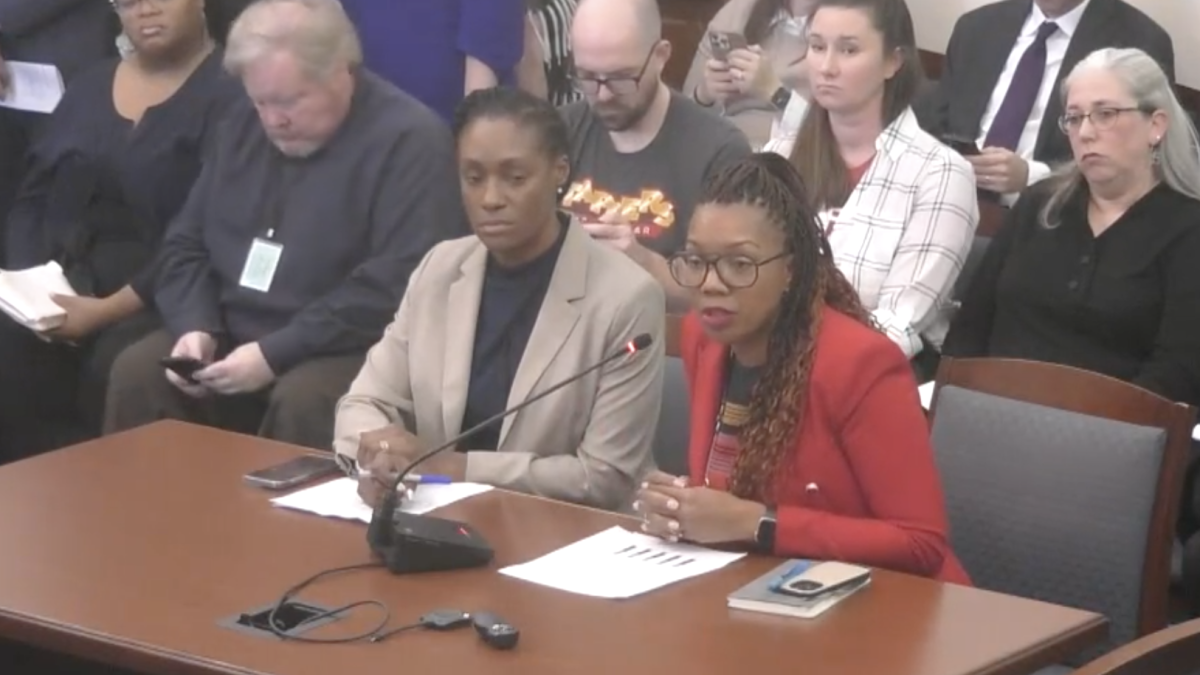
In recent years, tensions between IPS and charter advocates have resurfaced over property tax revenue sharing.
Johnson said changes in revenue from SB 518 could cause school closures, stretch funding thin and lead to hundreds of jobs lost in the district. That stretched funding would hurt innovation network schools, too, she said.
“Charter schools that we are supporting fully with transportation and building would be negatively impacted,” Johnson said. “There simply would not be enough to go around.”
But some GOP lawmakers and charter advocates pushed back on Johnson, and continued a call for shared funds.
Seeking equitable funding
Tensions were on display Tuesday as lawmakers heard testimony on SB 518, which more than half the room spoke out against. But some of the state’s most powerful school reform leaders also showed up.
Brandon Brown, CEO of The Mind Trust, said charter students receive about $8,000 less in public funds per year than district students due to not receiving local property taxes.
“The majority of Black, Hispanic and low income public school students within IPS attend a charter school,” Brown said during public comment. “When this committee is told for two hours that you should protect the poor and marginalized, that is exactly what you would be doing by voting this bill out of committee.”
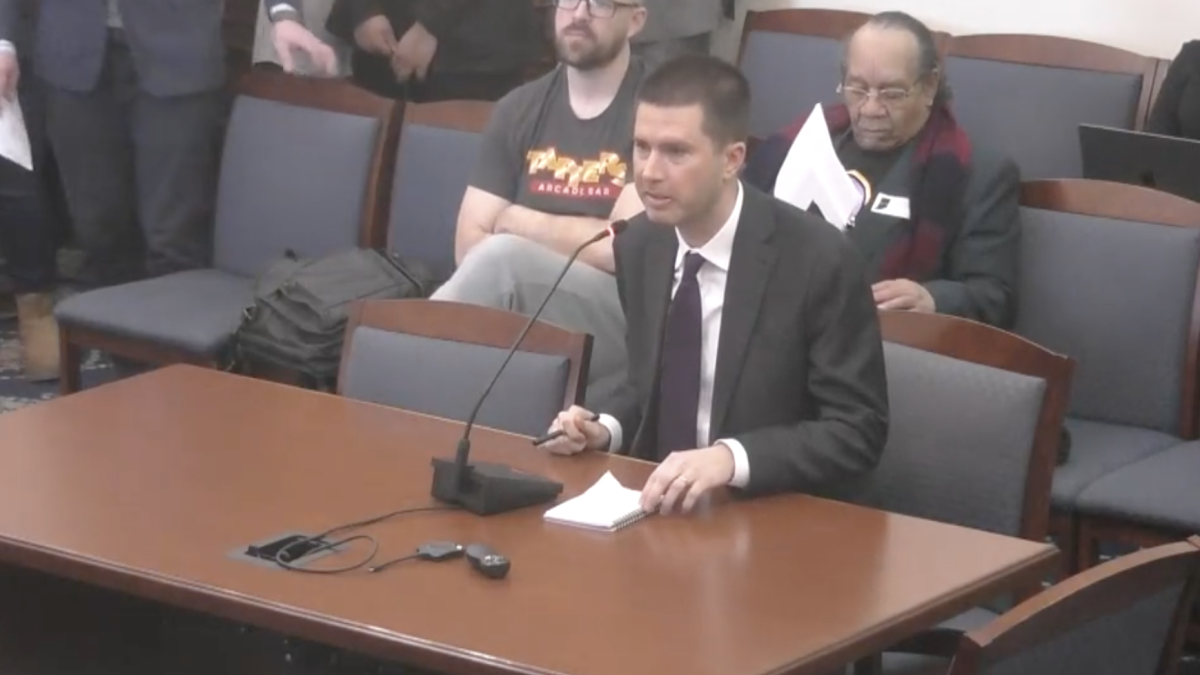
About 40% of students who live in Indianapolis Public Schools boundaries attended a public charter school, according to the most recent state transfer report.
Total IPS enrollment, including charter school partners, has remained roughly the same as it was 10 years ago. But charter advocates point to the enrollment at innovation and charter schools has increased while district-managed schools have struggled to keep up their numbers.
Indianapolis Democrat Sen. Andrea Hunley, a former IPS principal, said the bill divides communities rather than solving a historic problem. Hunley, who voted against the bill, proposed a moratorium on new charter schools and capping the number of charter authorizers as ways to stabilize school funding.
“If we destabilize Indianapolis, we destabilize the entire state,” Hunley said. “In order to have people come here, work here, grow families here, we have to have a stable school district, regardless of whether or not you choose to send your children to it.”
What’s next
The bill passed the committee with support from 10 Senate Republicans, advancing to the full Senate. But Johnson said she believes conversations are starting in the wrong place.
“We haven’t actually figured out what is the vision that we actually want to accomplish,” Johnson told WFYI. “What we’re doing is bringing policy forward that we know is going to create disruption and instability with no actual solution.”
Brown said The Mind Trust has been in discussions with IPS for more than a year and offered to collaborate on an amendment, but the district declined. An IPS spokesperson did not respond to a request to confirm Brown’s offer.
Brown said time is running out for IPS to “change their course of action and shift away from blindly opposing everything to working collaboratively”.
It’s similar messaging that’s followed IPS since the legislative session began. Johnson said the district’s track record shows a willingness to adapt.
“I do not want to suggest that Indianapolis Public Schools is a district that resists change and doesn't want to innovate and do things differently,” Johnson said. “We are more than happy to be engaged on that journey, in partnership with you all. What we don't want is for the voices of our local community and the experiences of our local community to be lost in that process, to not to be heard and to not be.”
Next, Senate Bill 518 will be voted on by the full Senate before a Feb. 20 deadline.
WFYI education editor Eric Weddle contributed to this story.
Rachel Fradette is the WFYI Statehouse education reporter. Contact Rachel at rfradette@wfyi.org.
 DONATE
DONATE


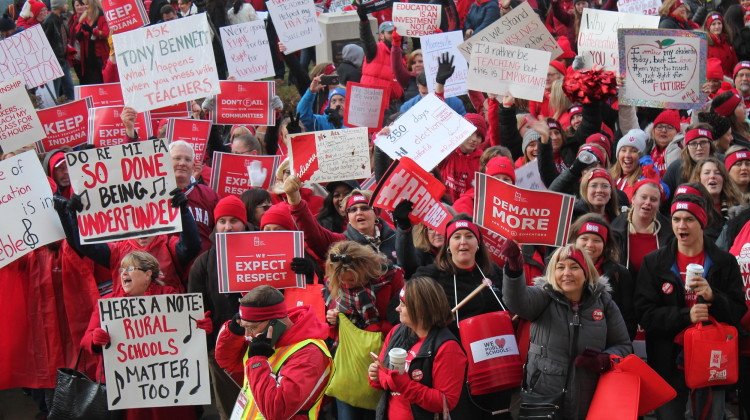
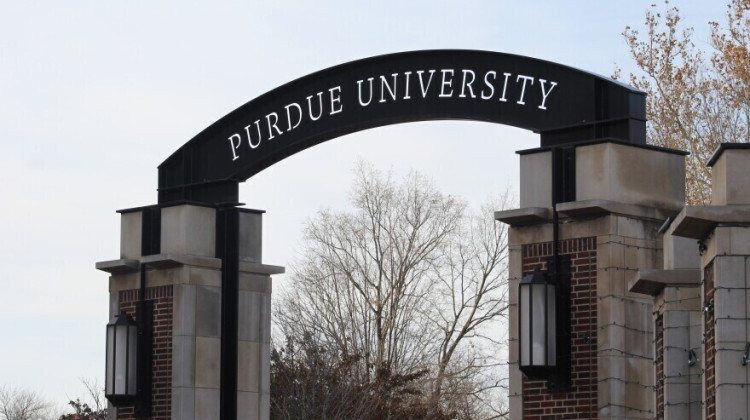
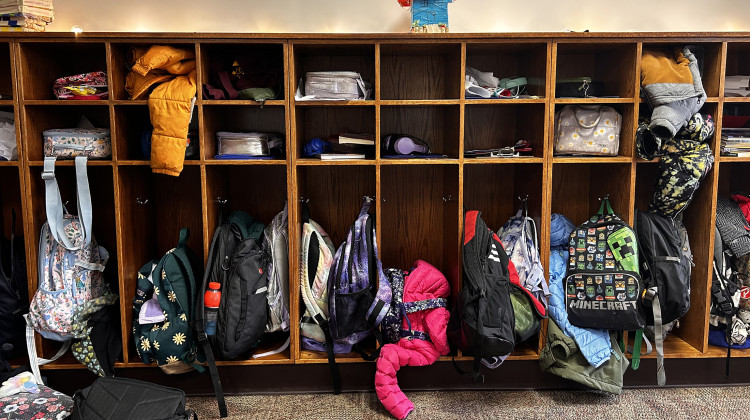

 Support WFYI. We can't do it without you.
Support WFYI. We can't do it without you.